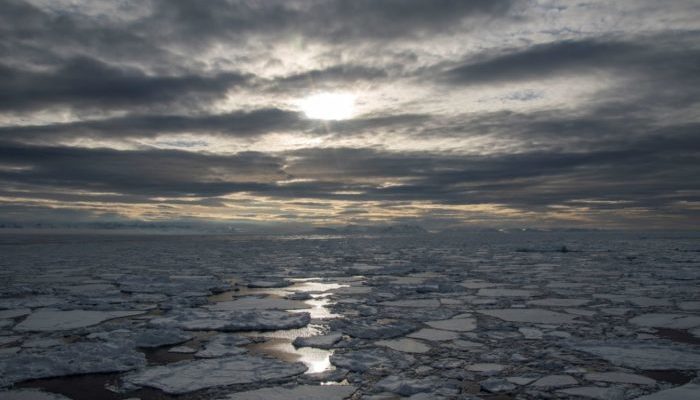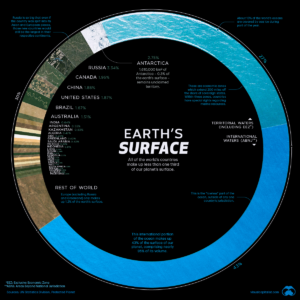
Today (8th June) marks World Ocean Day, celebrated annually since 1992 World Ocean Day is a chance to celebrate the 71% of our planet covered by the Ocean and reflect on the actions we need to take to preserve this vital part of our Earth System. Each year, World Ocean Day has a different theme, this year the focus is on Life and Livelihoods, seeking to represent the interconnections between the Ocean and marine ecosystems but also between the Ocean and the people who rely on, and are impacted by it.

Earth’s surface composition. Image courtesy of visualcapitalist.com
As physical and natural scientists, the human element of the Ocean is often distant from our primary research aims, however undoubtedly we contribute to the understanding of human-ocean interactions. From understanding changes in ocean pH, nutrient cycling, sea ice cover, sea surface temperature and primary productivity, to name but a few, the Biogeosciences community helps to decipher the ongoing and future changes which will impact marine life and subsequently human livelihoods.
One example of this work comes from the Advancing Knowledge of Methane in the Arctic (AKMA) project, jointly run by UiT – the Arctic University of Norway in Tromsø and WHOI in the USA. The team (lead by Giuliana Panieri, University of Tromsø) are currently undertaking a research cruise in the Arctic Ocean and Barents Sea. They have put together a video, led by Marie Bulinová, showing some of the techniques used by marine biogeoscientists to further our understanding of the Oceans and how to protect them.
The AKMA team said:
“The research vessel Kronprins Haakon left Longyearbyen in the Svalbard Archipelago on May 23, 2021 for an expedition that merges science and education. The expedition has been focusing on methane leakages in the Arctic to better understand the impact of this greenhouse gas on the environment and deep-sea life. Students and scientists onboard celebrate the World Oceans Day, in the first year of the Decade of Ocean Science for Sustainable Development, sharing a video with the ongoing activities and unique experience of being at sea.”
For more information about World Ocean Day, and to find out how you can get involved with helping to protect the planet visit: worldoceanday.org.

